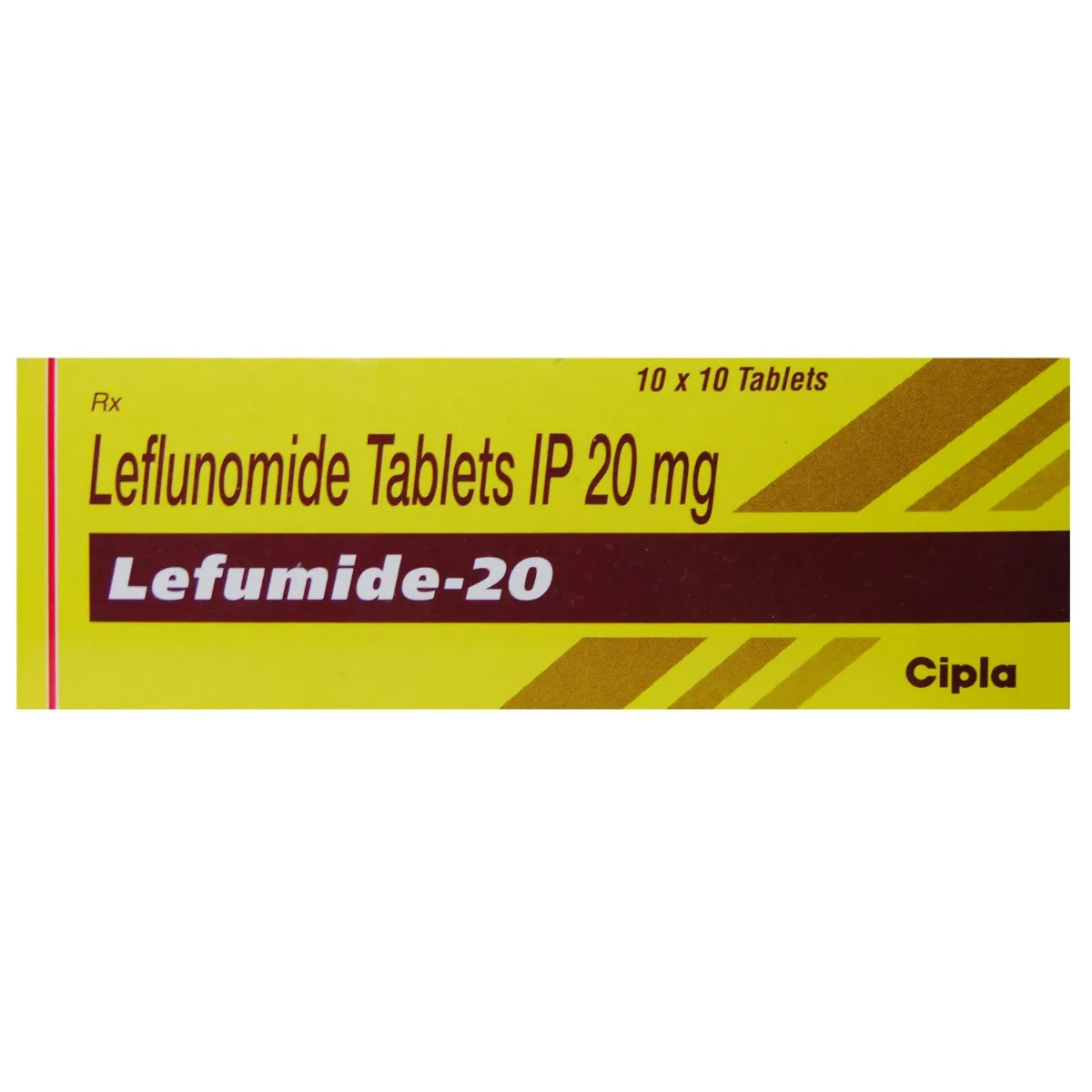Lefumide (Leflunomide) 20mg Tablets is a medication used to treat moderate to severe active rheumatoid arthritis (RA) in adult patients who have had an inadequate response to disease-modifying antirheumatic drugs (DMARDs). It is an immunosuppressive agent that works by inhibiting the production of pro-inflammatory cytokines and reducing the activity of immune cells.
Composition: Each tablet of Lefumide contains 20mg of Leflunomide (an active pharmaceutical ingredient).
Mechanism of Action: Lefumide works by inhibiting the production of dihydroorotic acid (DHODH), an enzyme involved in the de novo synthesis of pyrimidine nucleotides. This leads to a decrease in the production of pro-inflammatory cytokines and a reduction in the activity of immune cells, thereby reducing inflammation and joint damage.
Dosage: The recommended dose of Lefumide is 20mg taken orally once daily. The dosage may be adjusted based on individual patient response and clinical improvement.
Uses: Lefumide is used to treat:
- Moderate to severe active rheumatoid arthritis (RA) in adult patients who have had an inadequate response to disease-modifying antirheumatic drugs (DMARDs)
- Active psoriatic arthritis (PsA) in adult patients who have had an inadequate response to DMARDs
Side Effects: Common side effects of Lefumide include:
- Diarrhea
- Nausea
- Abdominal pain
- Fatigue
- Headache
- Dizziness
- Rash
Rare but serious side effects include:
- Increased risk of infections, including serious infections such as tuberculosis, fungal infections, and bacterial infections
- Increased risk of liver damage, including hepatitis and jaundice
- Increased risk of neutropenia, thrombocytopenia, and anemia
Recommendation: Lefumide is recommended for patients with moderate to severe active RA or PsA who have had an inadequate response to DMARDs. Patients with a history of hypersensitivity reactions to Leflunomide or other immunosuppressive agents should not receive Lefumide.
Important Note:
- Lefumide should be used under the guidance of a healthcare provider with experience in the treatment of rheumatoid arthritis and psoriatic arthritis.
- Patients with a history of liver disease, kidney disease, or blood disorders should be closely monitored while taking Lefumide.
- Lefumide may interact with other medications, such as immunosuppressants, anticoagulants, and NSAIDs. Patients should inform their healthcare provider of all medications they are taking before starting Lefumide therapy.
- Patients should be advised to report any symptoms of hypersensitivity reactions, such as rash, itching, swelling, or difficulty breathing.



Reviews
There are no reviews yet.